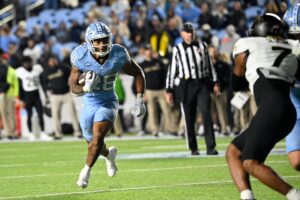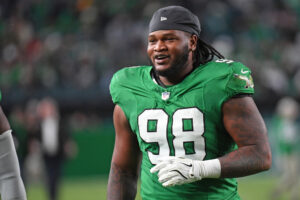Financials aside, the reduction in preseason games helps the Chicago Bears. That might be a little too broad a statement. Players on the roster bubble will be hurt by this. Fringe vets could lose out to cheap labor. Those on the younger side might not have a significant chance to showcase their wares. Organizations, on the whole, could see some benefits and that’s where the Bears find themselves.
Playing Fewer Preseason Games Helps Bears
Wait, What?
How can fewer opportunities to evaluate players be a good thing? Even more pertinent, how can this be good for the Bears after the debacle that was 2019 started in the preseason? Fans got gassed the staff about how advanced the offense was just to be let down, almost weekly.
All of that is true, but let’s be honest here. The “important” players never play even the majority of the preseason games. Starters generally come out for a drive (maybe) in Week 1, a series or two in Week 2, and then the entire first half of Week 3. Week 4 is almost always used for rest to starters and key players and as a final shot for those fringe guys to prove their worth.
In other words, starters generally play just under three quarters in the preseason. The NFL cut Weeks 1 and 4, the weeks where starters play the least, if at all. So there doesn’t need to be any concern on the top guys missing much action.
This also means fewer games for players to get injured. That has been a key point of supporters of reducing the number of preseason games for quite some time. That doesn’t directly affect those top-end guys. But it will help immensely with the depth teams inevitably need every season.
Bears Situation Unique
Chicago is in a relatively unique situation in the NFL this year with an open quarterback competition. They have publicly stated that no determination will be made until actual football has been played. It’s hard to ignore that they declined Mitchell Trubisky’s fifth-year option. But they also traded a draft pick and committed cap space to Nick Foles.
It stands to reason, then, that many fans and most pundits think it will be Foles’ job when all is said and done. But that is based largely on the effort to get him here and some of his previous stints where he crossed paths with many of the Bears new coaching staff.
But the best thing for the Bears would be that Trubisky is motivated by Foles’ addition and plays up to his potential. The lack of superfluous games helps narrow the evaluation window. It makes each snap that much more important, even if they are playing the same amount. That’s because their teammates, like the offensive line, tend to get a little time in-game before having to protect the franchise.
If the line (and wide receivers) are still getting their footing, the quarterbacks will have to show out under difficult circumstances. That should be viewed as a positive because whatever is left of the on-field training camp structure will be controlled chaos at worst. That’s the scene that had Matt Nagy and Ryan Pace talking out of their necks.
Fewer Preseason Games Helps Bears
This year’s preseason will be the football version of “out of the frying pan and into the fire”. Players will go from socially distanced (to the extent that it’s possible) to playing to get themselves right. There just isn’t much time to knock the rust off or get into shape.
Trubisky and Foles is the camp battle for the Bears this summer and they got an unexpected helping hand from the pandemic. They’ll now get to see both quarterbacks under duress. A better way to test a player’s mettle doesn’t exist. Even with their stout defense, how far the Bears ultimately go will be dependent on quarterback play.
Staff, players, and fans should have a pretty good idea of who is best suited to lead this team in 2020 by the time Week 1 of the regular season rolls around. An opportunity they squandered last season has been thrust upon them. It’s hard to argue this is in any way detrimental to the Bears. It should help them when all is said and done.
Main Photo:
Embed from Getty Images






